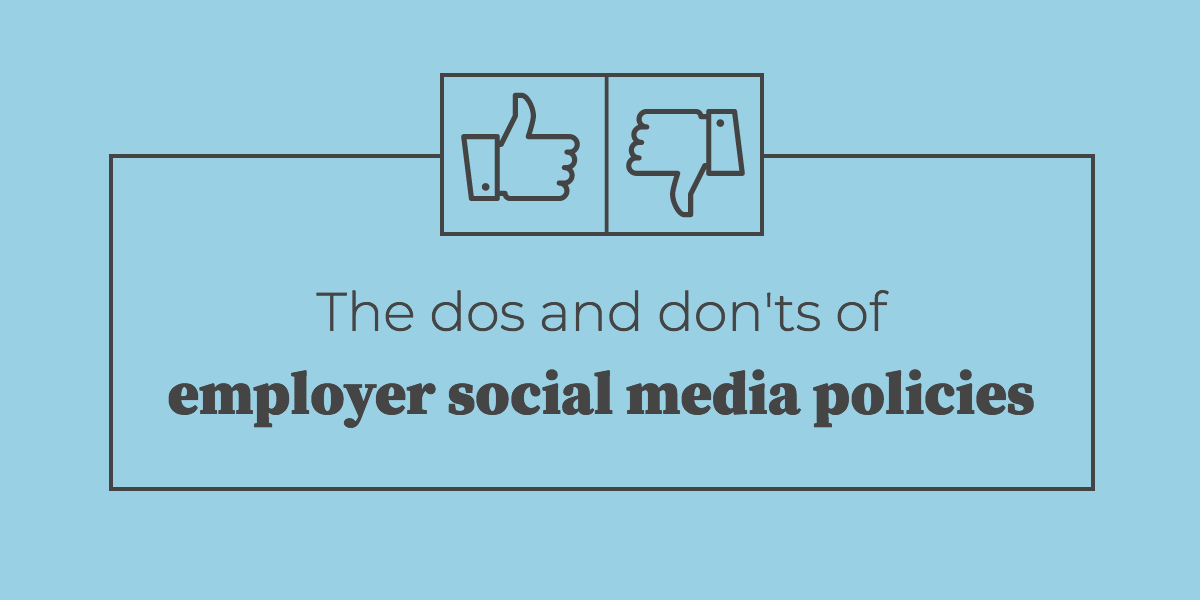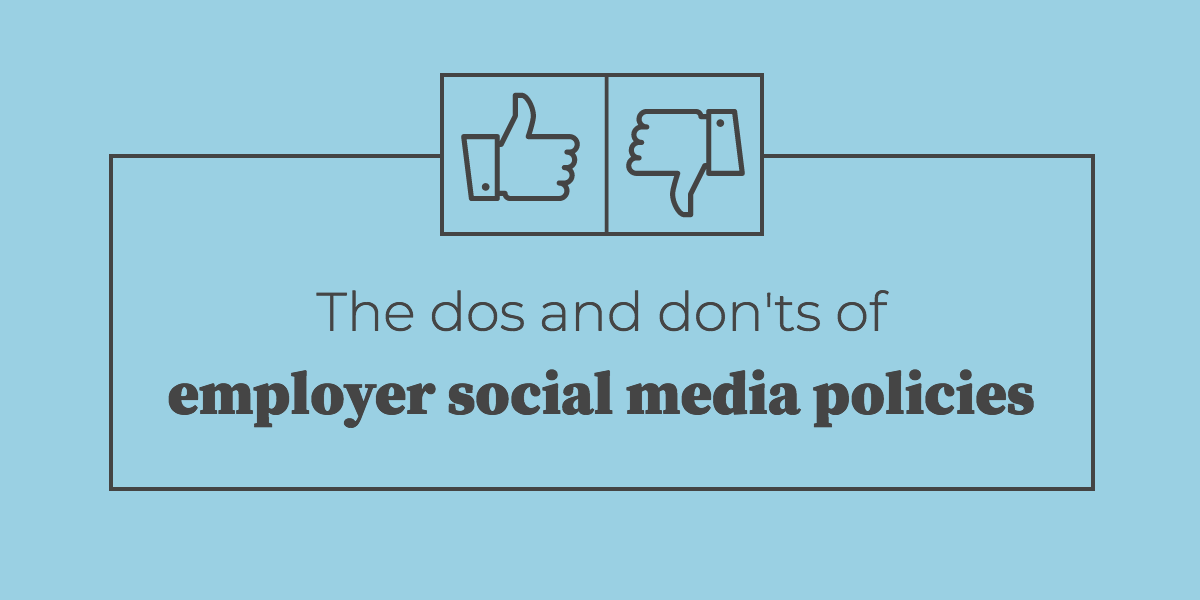
It’s no secret that social media has become part of most peoples’ daily routines in the last few years. With over 2.3 billion people worldwide engaged on at least one platform, and 69% of adults in the U.S. using Facebook, the odds are good that many people employed by your company use social media at some point in the day. In fact, depending on your industry, they may even be engaging on social media as part of their work.
In an ideal world, everyone would know exactly when and how to engage on Facebook, YouTube, or any of the other major social networks. But 15 years into the age of social media, the norms dictating what’s acceptable are still ill-defined. For employers, this lack of clarity can result in some sticky situations. That’s why it’s a good idea to spell out your company’s expectations and standards in a social media policy.
When you’re writing a formal social media policy, it may be tempting to make rules that stop your employees from griping about their jobs, discussing confidential information, or connecting with coworkers on social media. However, recent guidance from the National Labor Relations Board (NLRB) indicates that this approach may interfere with employees’ first amendment rights, as well as their rights to organize.
Based on the available guidance from the NLRB, here are some things employers should keep in mind when writing social media policies:
Your policy should not include:
- General prohibitions against discussing work. Employers cannot legally prevent employees from discussing their jobs, complaining about colleagues, or disparaging company decisions and policies on social media.
- Restrictions against employees’ abilities to connect with (or “friend”) one another on personal social media pages.
- Requirements that employees (or prospective employees) provide social media account information or passwords.
- Prohibitions against employees posting or discussing information about their pay, benefits, or working conditions.
- Any language that would prohibit employees from using social media to contact traditional media (local news reporters, newspapers, etc.) about work-related concerns. You may, however, stipulate that employees must indicate in conversations with the media that they’re not speaking as a representative of the company.
Your policy should include:
- Specifics about what constitutes a trade secret. While blanket prohibitions against revealing confidential information are not generally enforceable, it’s okay to tell employees not to share information about proprietary formulas, customer lists, technological specifications, and other trade secrets on their social media accounts.
- Specific examples of inappropriate conduct. It’s not possible or legal to police all employee conduct on social media, but employers can clarify that hate speech, bullying, retaliation, and discriminatory conduct on social media platforms may be cause for discipline and/or termination.
How to make sure your policy works
Involve employees
As with any company policy, it may be a good idea for HR managers and other corporate leadership to get employee feedback and buy-in when writing social media guidance. Take the temperature of what limitations your staff finds reasonable, and what would make them feel improperly restricted.
Keep it simple
The simpler the social media policy is to understand, the more likely your employees will be to comply with it. Distill the policy down to a few basic principles (such as “be respectful of your coworkers,” “remember that you speak for yourself, not on our behalf,” etc.) that employees can easily keep in mind.
Continue the discussion
Cultural norms about social media usage are fluid, so your social media policy should be a living document. Make these standards an ongoing conversation and training opportunity for your staff, rather than simply a policy they need to sign off on when they start at your company.
Be consistent
In all aspects of the deployment and enforcement of your social media policy, make sure you’re being as consistent as possible. If you review applicants’ social media presence before making an offer, be consistent about when and how you look, and what does or does not constitute a red flag for your hiring team. If and when an employee’s conduct on a social media channel warrants disciplinary action, make sure it’s consistently applied. As always, HR managers should be careful not to play favorites or apply consequences unevenly.
Know when to get expert help
If you’re just getting started with a social media policy for the first time, or if you’re ready to refresh an existing policy, you may want to look at what other companies’ employee social media policies look like. Look to other companies in your industry, or at the policies that well-known brands use to govern their own employees’ social media usage.
However, even if you’re taking a page from another established employee social media policy, it’s probably a good idea to have your policy reviewed by a lawyer to make sure that you’re not putting your company at odds with the NLRB, or otherwise infringing on your employees’ first amendment rights.
To stay up to speed on workplace compliance issues and HR best practices, make sure to subscribe to the Fuse Workforce blog below.
